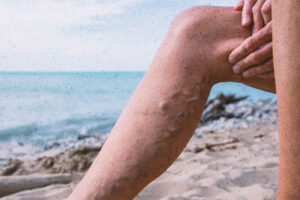By Henrylito D. Tacio
If there’s a Filipino counterpart of the famous characters MacGyver (played by Richard Dean Anderson) and Rambo (Sylvester Stallone, who else) rolled into one, then Dr. Teofredo “Doc Ted” T. Esguerra is the most apt.

“This is my profession and a service I want to do as a Filipino doctor. What was important is that they remember that a Filipino doctor treated them, and treated them well. So, next time a Filipino passes through this area, I hope the locals will remember me and treat those Filipinos well too.”
A flight surgeon whose expertise is on emergency medical services, part of which is high altitude medicine, Doc Ted said those words in 2006 when he was part of the Filipino team who scaled the world’s highest peak, Nepal’s Mount Everest. He stayed for the most part at the base camp, which is 18,000 feet above sea level.
“We stayed for 3 months around the Himalayan ranges to acclimatize our bodies to high altitude,” he recalled. “We climbed lower peaks to train and adapt to the environment where we were in. Nobody just climbs the highest peaks there without acclimatizing.”
Every rescue team, he says, needs a doctor and he is that doctor. Aside from taking care of the health of everyone, Doc Ted also took charge of the nutrition, the safety procedures, the rescue evacuation if something happened, and the acclimatization training program before the climb.
“I presided over their training by trekking or running at some peaks in the Himalayan region; then got their vital signs and tabulated if the climbers had adjusted to the environment. If there were instances of ‘delay’ of acclimatization, I usually started giving medicines to somehow enhance the process,” he said.
Doc Ted became the most popular figure in the mountain when he rendered medical treatment for free (where charges at that time were as much as $75 for checkups and treatments). “Along the way, I ended up a doctor to everyone – Tibetans, Spanish, Italian, South African, Israeli, Belgian, Indonesian, Singaporean, Malaysian, American, French, German, Swiss, everyone!”
It came to pass that two foreign climbers were trapped in heavy snow storms buffeting Mt. Cho-Oyu. Without much ado, he joined a four-hour rescue mission to save Spanish climber Rafael Mician, who suffered from pulmonary edema. An afflicted climber can literally die from drowning because of fluid in the lungs.
Had it not been for Doc Ted, Mician would have lost his life right there. His other famous patients include Columbian climber Camilo Lopez, Singaporean gland slam adventurer Khoo Swee Chiow, and Malaysian Vincent Loh.
One memorable case was saving the life of Indonesian trekker Amalia Yunita. She was suffering from cerebral edema, meaning her brains were filled with water. “This was an ICU (intensive care unit) case,” Doc Ted recalled, “but she could not be brought down because she would die of the extreme cold.”
Incidentally, the Italian team had a laboratory at Lobuche, known as the Pyramid. Despite the fact that Doc Ted was from another country, they allowed him to use their equipment. The next day, Yunita recovered fully from her ordeal.
She later wrote Doc Ted a letter saying that in gratitude for saving her life and that she was already involved in rescue missions. Yunita had, in effect, “paid it forward,” to paraphrase the title of that popular American movie.

Doc Ted’s life story before he became what he is now seems to be written for a movie script. He was left by his biological mother on the banks of Miral River in Bansalan, Davao del Sur and was adopted by the Esguerras.
While growing up, he dreamed of becoming a pilot. It so happened that his adoptive mother was stricken with cancer. He changed his plan and decided to take up medicine. He had his initial studies in Davao Medical School Foundation (from 1989 to 1991).
“But I was so active in the world of activism and music which cost me my studies,” he now recalled. He stopped for a year and concentrated on pursuing music and arts. “In those days, I was more of an artist. I sculpt, I paint, I perform in a band. I was noted as an artist more than as a doctor.
Then he had the chance of going back to school. He attended the Bicol Christian College of Medicine, where he finally graduated in 1994. He took his medical board examination in 1996.
Doc Ted had his aviation medicine training when he was working at the Armed Forces Hospital Southern Region in Saudi Arabia. He was an ambulance doctor there handling both ground and air. His childhood dream of becoming a pilot came true.
It was just a matter of time that Doc Ted became the founder and course designer of the volunteer national rescue team known as the Wilderness Search and Rescue (WISAR) Team. He is trained on Urban and Wilderness Rescue, Aviation Medicine, Expedition Medicine for Tropical and Alpine Mountain Operations, Tactical Medicine, and Disaster Management.
Doc Ted was also involved with the Philippine Coast Guard’s elite rescue team. He is sent with his crew to disaster zones, often rappelling down from helicopters to rescue sites. He takes his team through repeated training. The situations change, and include earthquake, hazardous materials, flood, bombing, combat and trauma. “We’ll make each day a safer one by training anyone how to save lives,” he said.
His mantra of saving lives came because of a traumatic experience he had when he was a Grade 4 pupil of the Southern Mindanao Academy in Matan-ao, Davao del Sur. He went swimming with some of his classmates after the morning class.
“I nearly drowned along the Managa River one noon,” he admitted. “Since then, I took the challenge on how to be skilled not to have an accident again – and how to save lives.”
Although the Philippines is a disaster-prone country (typhoons, earthquakes, floods, and volcanic eruptions, to name a few of these disasters), most Filipinos are not prepared for them.
“We do not have a rescue or pre-hospital law in the country,” Doc Ted pointed out. “Our psyche is not much into it. There are quite a number of rescue teams who were ill-trained and ill-equipped with not much safety inductions and are performing high-end operations.”
Doc Ted suggested that disaster management be part of the lives of Filipinos. “Just like every Israeli who knows how to fight and shoot and like the Japanese who are always prepared and have some survival kits as part of their day-to-day evolution,” he explained.
Doc Ted considers himself “a hard-core humanitarian worker.” He is connected with the Knightsbridge International Humanitarian Organization, which works particularly in the hostile areas of the world. “I always render and facilitate humanitarian support locally and internationally,” he said.
Doc Ted is also a man who is very much aware of what is happening with his surroundings. When asked if he were to be born again, the Bagobo orphan chooses to be a tribal chieftain. “As chieftain,” he explained, “I have more the power to protect the environment, preserve the cultural richness, uphold the purity of science in its simplest presence, be dauntless defender of my community, be freedom fighter, be the elder teacher of my constituency, and be the patriarch in the belief to a Supreme Being who made this wonderful world we are in.”
Doc Ted indeed has come a long, long way since he was a little boy growing up in Bansalan, Davao del Sur, where he had so many fond memories. “I biked around the town,” he recalled. “I played along the Miral River and took a bath. I feasted on durian during its season, watched waling-waling blossoms in the backyard, and hunted wild ducks on some occasions.”

But there were some regrets though. When he became a man of his own, he left his family and went to Luzon. “I never had the chance to visit my (adoptive) parents often while they were still alive,” he lamented. “The time I went home, they were already gone – not your way of saying goodbyes. Worst is that I am a doctor and my parents died not in my arms. I could have extended some skills I have on them. I mean my expertise is saving lives in the field. I could have done it on my parents.”
Although he is now a practicing Muslim, he respects other religions. “In the humanitarian world, we don’t talk about politics and religion. We just talk about how we can redeem the poor.”
Doc Ted, as stated earlier, is an artist; he is a song writer and poet. In one of his poems, he wrote several lines about his existence in this world. Part of this rhyme stated: “Saving life is my sole game, / Careful teaching is my fame.” – ###
Photos courtesy of Dr. Teofredo T. Esguerra
Photo captions:
1) Saving a life.
2) During a flood.
3) The author and the doctor.








